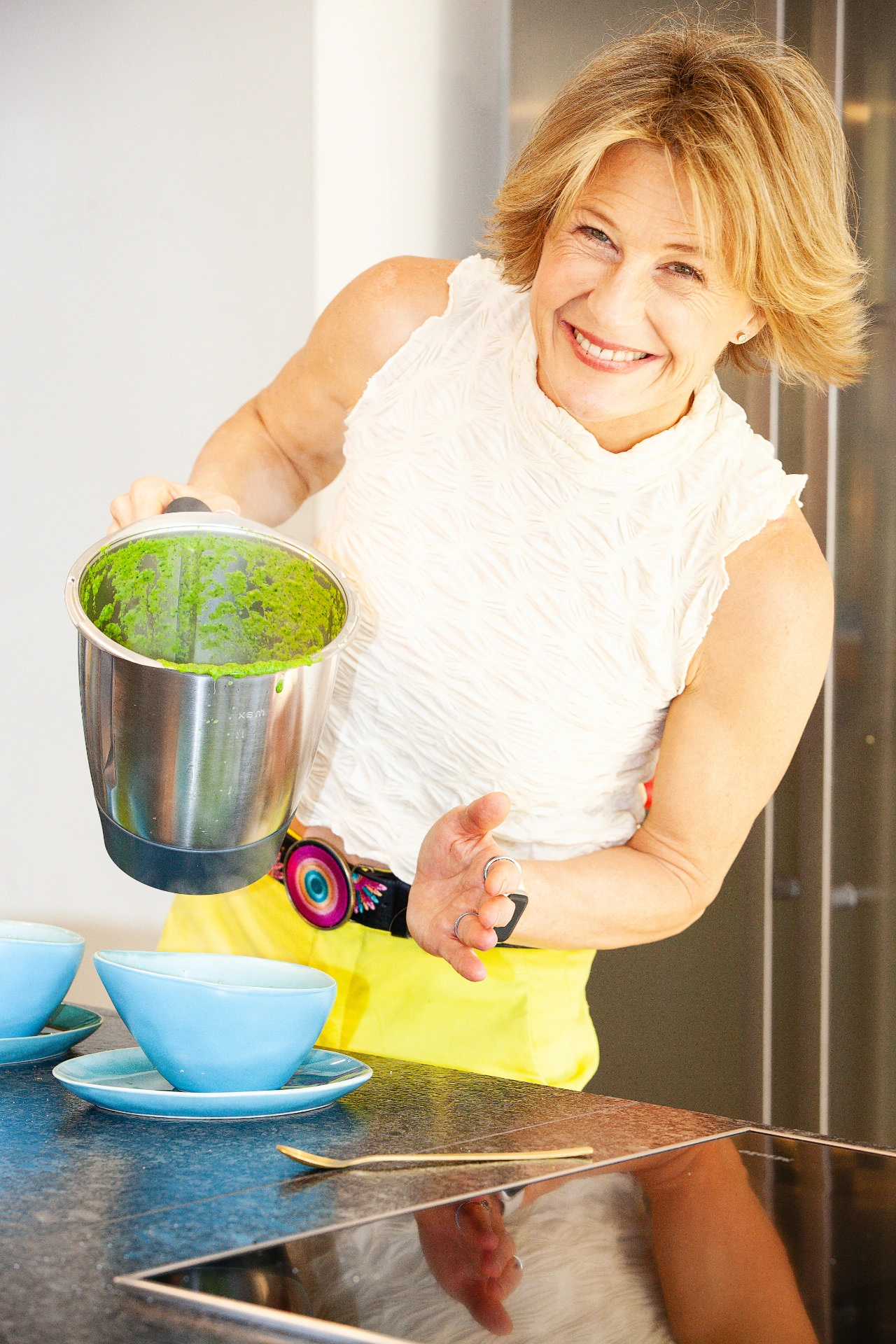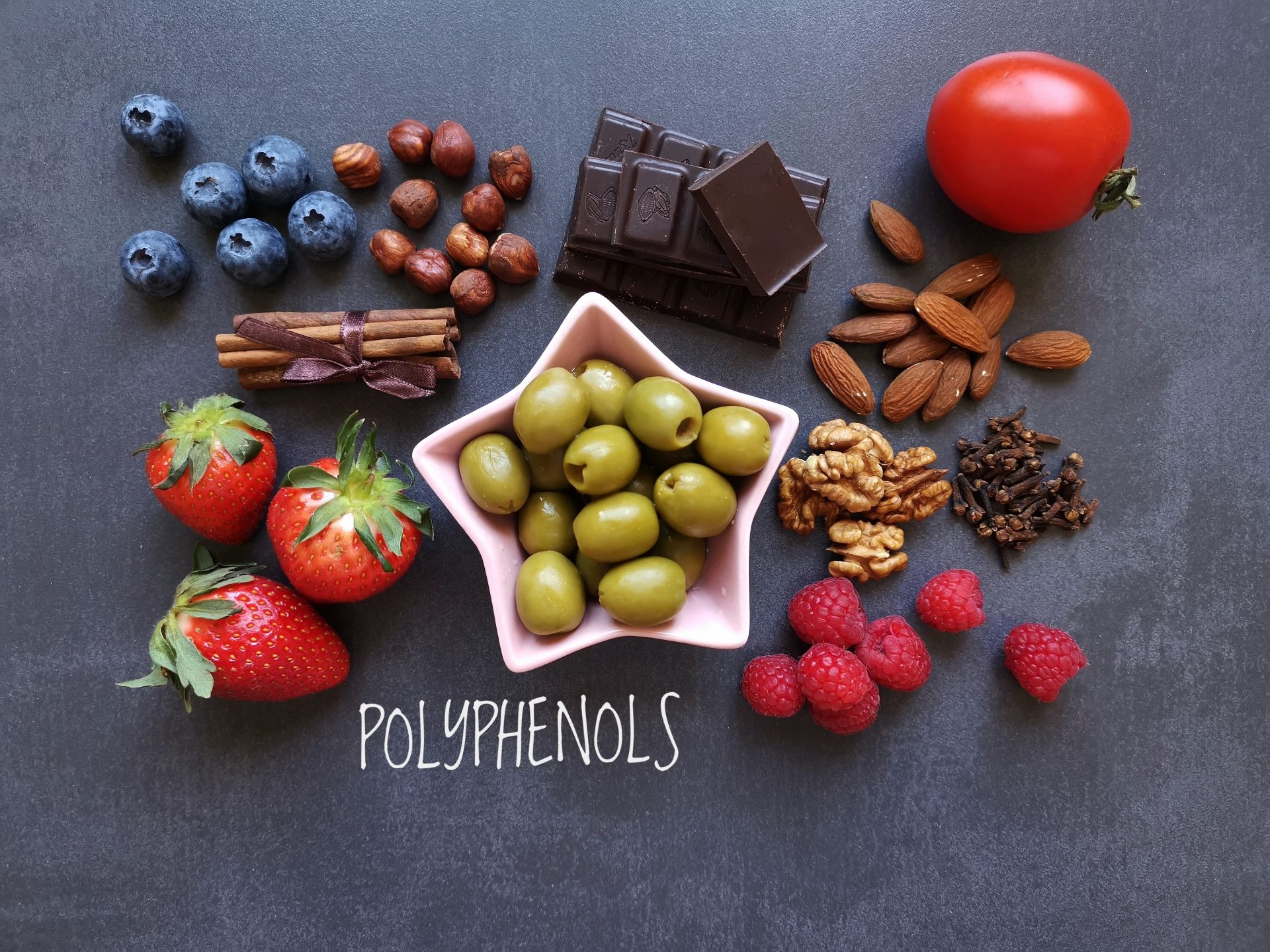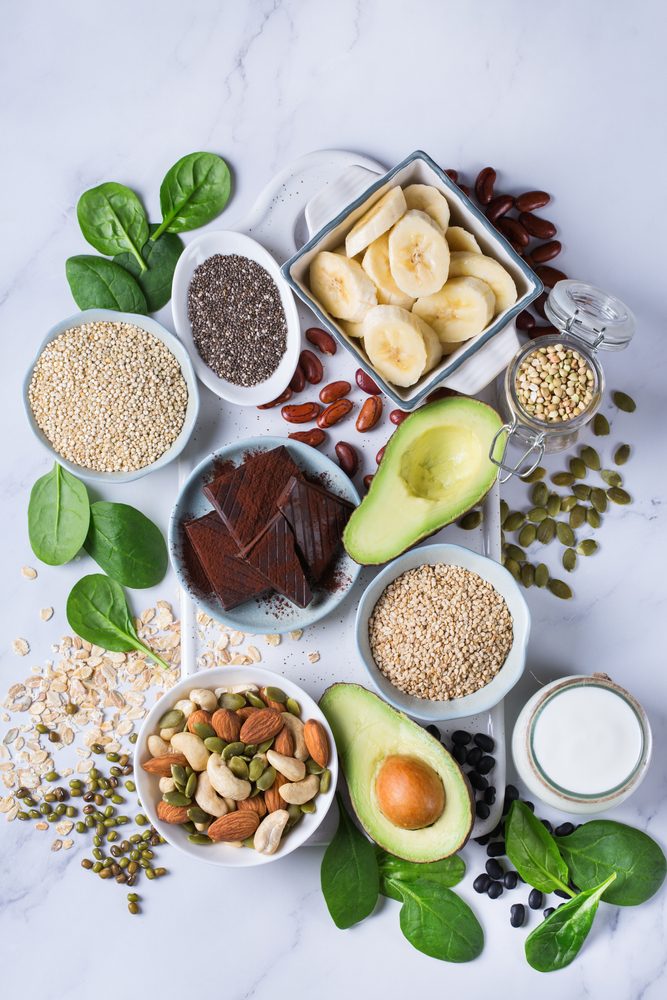
Soup with bread on the side is a standard lunch for many people, but how does that make you feel mid-afternoon? Peckish? Low in concentration? Reaching for a snack? I have a trick that will completely up your soup game. It will make you feel fuller, more satisfied, nourished and keep you feeling balanced until dinner.
My top tip is to add extra protein to all of your soups to make them a more balanced meal. Soup contains healthy vegetables and fibre, and seeded or sourdough bread can provide us with healthy carbohydrates. However, without sufficient protein we might find that this meal is digested quickly which can leave us feeling low in energy and hungry just a couple of hours later.
This is because the meal can give us a fast-acting glucose spike with a corresponding dip shortly after eating. These dips can leave us feeling tired and can increase cravings, especially for sugary foods.
We therefore need to remember to ADD protein back IN to create nutritional balance to the meal and make sure that our macronutrients are in proportion. Luckily, lots of the protein top-ups also come with a healthy dose of fibre which amplifies this satiating effect
Protein helps to stabilise our energy, our mood, our hormones and our digestion, but it also helps us to stay fuller for longer. This really does leave us feeling our best and more likely to make better choices at our next meal.
Eating protein is important as it regulates hormones that are associated with appetite control. Hormones such as GLP-1, ghrelin and Peptide YY are all sensitive to the amount of protein and fibre we eat at meals. This is associated with feelings of satiety and leads to a reduction in cravings. These hormones can also help to reduce the ‘food noise’ which I describe as the constant chitter-chatter between our gut and our brain about food. So getting the balance right at meals is so important.
Adding protein and fibre can make your soup more delicious, and also increases the nutritional density, with more vitamins and minerals, making it a win-win addition.
Ensuring meals have adequate protein and fibre is the basis of my two signature programmes, Renew Reset Recharge and The Triple 30 Plan. In fact our surveys show that on Renew Reset Recharge® people experience over 80% less sugar cravings while following the programme.
A core principle of my Triple 30 Plan is to add around 30g of protein per meal. Having this level, of what I call optimal protein, in your diet may have far reaching effects on appetite, mood and health, especially when combined with 10g fibre per meal.
Protein ideas – Add in the pulses
You can add in beans, peas and lentils to your soup along with the vegetables. This immediately turns a soup into a ’meal’ soup which is so much more satisfying.
Legumes give you a slower release of energy, compared to other faster acting carbs such as rice or bread and are likely to keep you fuller for longer. Some beans can be added into the soup whilst it cooks, others can be roasted for a crunchy topping (see next page).
The portion sizes below can be used as a guide to try and reach your 30g protein per meal. You don’t need to focus on one protein—you can add lentils to the soup and crumble feta cheese on top for example.
Legumes to add into your soup
Adding a tin of beans to your soup can add in an extra 15-20g protein to the soup itself, whereas 100g dried lentils can contain as much as 25g protein.
Dried lentils cook in as little as 20-25 minutes. We might need to add in a little extra stock as they cook. Did you know that adding different coloured lentils to your soup counts as extra plant points as red lentils and green lentils count as 2 different plants!
Choose from butter beans, chickpeas, cannellini beans, flageolet beans, black beans or red, black, green or Puy lentils.
Pile it high!
Here are some protein rich ideas that you can use to ‘top’ your soup to add more flavour, texture and colour whilst boosting the protein.
Simple protein toppings
75g pumpkin/ sunflower seeds = 16g protein
100g Greek yogurt = 10g protein
80g feta cheese = 16g protein
2 poached/ boiled eggs = 12g protein
75g halloumi cheese = 18g protein
100g mozzarella cheese = 17g protein
50g parmesan cheese = 16g protein
140g cooked chickpeas = 8g protein
125g cooked lentils = 11g protein
140g butter beans = 11g protein
140g tofu = 23g protein
100g falafels = 10g protein
100g smoked tempeh = 22g protein
Extras on the side
See the soup as your base that you add to, or why not put the protein onto your bread with the soup? It could be smoked mackerel, hot smoked trout, cheese, a sliced boiled egg, some sliced chicken, tempeh slices, or a falafel and hummus.
The great thing about soup is that it is one of the easiest foods to batch cook and freeze. Freeze two or three types of soup and keep some of these protein and fibre sources in your fridge and cupboards and you’ll always have a healthy lunch to hand!
If you are at work, take some feta, mozzarella or toasted seeds with you to add into your soups easily and give them a top-up.
These meal soups can also fit really well into a food flask, making them very transportable.
If you want to make your soup even more substantial, and to add more fibre too; you could add some bulgur wheat, freekeh, or pearl barley as an alternative to bread. These cook in as little as 20 minutes so can be added to your soup during cooking.
DOWNLOAD THE FULL ARTICLE WITH RECIPES HERE
About the Author, Dominique Ludwig, Nutritionist MSc and Nutritional Therapist mBANT
Dominique Ludwig is an accomplished Nutritionist MSc., and Nutritional Therapist who is also BANT, CNHC and AFMCP accredited. She works with numerous health conditions using a personalised nutrition approach. She specialises in her signature group programmes Renew Reset Recharge® programme and The Triple 30 Plan and runs a busy clinic in the heart of the South Downs where she works with her private clients as a Nutritional Therapy Practitioner, offering personalised Renew Reset Recharge® appointments. Dominique is also a double award-winning nutritionist. She has over 30 years’ experience as a King’s College, London qualified Nutritionist and almost 20 years as a registered Nutritional Therapist.
Dominique works with many high-profile and A-list clients, known and respected for her discretion, expertise, and trustworthiness. Working out of her own busy practice, Dominique Ludwig Nutrition Limited, in Hampshire as well as Meyer Clinic in Chichester, Dominique has helped over a thousand clients, globally, live healthier lives. She is a regular contributor to The Times, The Sunday Times and Times 2, Sheerluxe, Top Sante and many other magazines and podcasts.
DISCLAIMER:
Features published by Dominique Ludwig are not intended to treat, diagnose, cure or prevent any disease. Always seek the advice of your GP or another qualified healthcare provider for any questions you have regarding a medical condition, and before undertaking any diet, exercise or other health-related programme. Please refer to our Terms and Conditions and Medical Disclaimer for more information as well as our Website Terms and Conditions.





